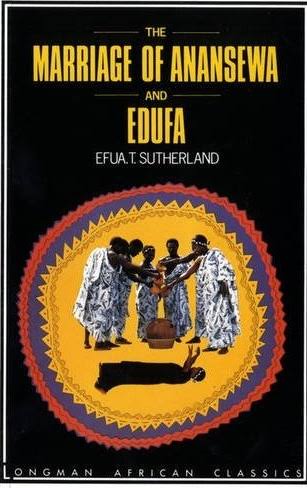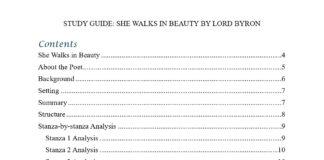Quality UTME Lessons for Art Students
Individual and group classes • Student-friendly rates
📞 Contact Ayomiposi on WhatsApp now
John Pepper Clark’s play, The Wives’ Revolt, explores various themes that point to the societal dynamics and struggles for gender equality within the Nigerian society.
The prominent themes of patriarchal dominance, power struggle, gender inequality, and role reversal form the foundation of the play’s narrative.
Theme of Patriarchal Dominance
The theme of patriarchal dominance is a prominent theme in John Pepper Clark‘s The Wives’ Revolt. The playwright explores the patriarchal power structure that is deeply entrenched within the Nigerian society as portrayed in the play.
The male characters hold positions of authority and leadership within the community. As leaders of the community, they use their power to enforce their dominance over the women. They make decisions without consulting or considering the perspectives of women, exemplifying the patriarchal control that marginalizes and suppresses women’s voices.
The distribution of the money provided by the oil company is a significant example of patriarchal dominance. The men unilaterally decide on a sharing formula that favors themselves and the male elders, while giving a lesser portion to the women. This unequal distribution reinforces the idea of male entitlement and the power dynamics inherent in a patriarchal society.
The banning of goats by the men also reflects the patriarchal dominance in the play. The men make a law that prohibits the women from rearing goats, linking it to accusations of witchcraft. This decision is based on the false judgment of a few men who label their wives as witches.
Related:
- Critical Analysis of John Pepper Clark’s “The Wives’ Revolt”
- Characterisation in “The Wives’ Revolt”
Okoro, one of the male characters in the play, embodies patriarchal dominance in person. He consistently belittles and dismisses his wife, Koko, asserting his superiority in both words and actions. He devalues her efforts, finds fault in her cooking, and mocks her contributions. Okoro’s behaviour reflects the deeply ingrained patriarchal attitudes that men are superior and women should conform to traditional gender roles.
The women’s revolt against this dominance becomes a rallying cry for gender equality and the need to dismantle patriarchal structures.
Theme of Power Struggle
The theme of power struggle is central to The Wives’ Revolt. The play portrays the conflict and tension that arises between men and women in a certain oil-rich community in Nigeria as they contend for power and influence within their society.
Premium PDF
There are 602 words left in this article and a total of 4,631 words in our premium PDF. Download the entire The Wives’ Revolt study guide as a printable PDF now!

Resource Text
- Clark, J. P. (1991). The Wives’ Revolt. University Press PLC.
Receive Literary Updates through our Social Media Channels:
- WhatsApp: Literature PADI
- Telegram: Literature PADI
- YouTube: @literaturepadi
- Facebook: Literature PADI








